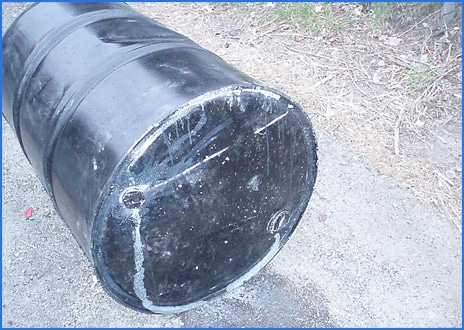
In “Solving the Problem of Childhood Obesity Within a Generation: White House Task Force on Childhood Obesity Report to the President” (available online as a PDF file; link is ours), the section called Chemical Exposures starts on page 17. One of the consequent Recommendations is,
Federal and State agencies conducting health research should prioritize research into the effects of possibly obesogenic chemicals.
For a popular account of this area of inquiry, not necessarily endorsed by Dr. Pretlow, but as a example of what people are thinking and saying, please see “Obesogens Hidden In Your Food Making You Fat.” This article says,
It may sound like science fiction, but the American Medical Association, the National Institutes of Health, and White House Task Force on Childhood Obesity have all declared obesogens, also known as ‘endocrine disrupting chemicals,’ to be a potential danger to America’s waistlines… Called obesogens, or endocrine disruptors, these natural and man-made chemicals work by altering the regulatory system that controls your weight — increasing the fat cells you have, decreasing the calories you burn, and even altering the way your body manages hunger.
It does sound like science fiction. A strange substance changes a person or a whole population. Superman is weakened by kryptonite. Mutant creatures shuffle out of the swamp where hazardous waste was dumped. A chemical leak kills and permanently injures hundreds of thousands of people. Oh wait, that really happened.
Anyway, are there vast amounts of environmental toxins in the water and the air, and in practically everything we eat? Could there be a pervasive molecule that gets into almost everybody, attacking our livers and making them insulin-resistant? Could some chemical agent alter large numbers of people, making us very addiction-prone? Could it happen? Probably. Is it happening? Maybe.
Whatever the scientific validity of that theory, it brings a problem with it. There is such a thing as food addiction, and a class of pseudo-foods or food-like substances which are specifically designed to appeal to our addictability. A certain number of obese individuals want to change, but will not be able to change until we start operating under the psychological food dependence-addiction paradigm.
In other words, people need to be realizing they are hooked and taking the appropriate steps to get unhooked, like any other addict. Any other factor that may or may not contribute to obesity can too easily be appropriated as an excuse or copout, which makes it very much easier to exist in a state of denial about food addiction.
Your responses and feedback are welcome!
Source: “Task Force on Childhood Obesity” (PDF), LetsMove.gov
Source: “Dr Oz Obesogens Hidden In Your Food Making You Fat,” HealthyBodyDaily.com, 09/21/10
Image by Massachusetts Dept. of Environmental Protection, used under its Creative Commons license.

 FAQs and Media Requests:
FAQs and Media Requests: 











